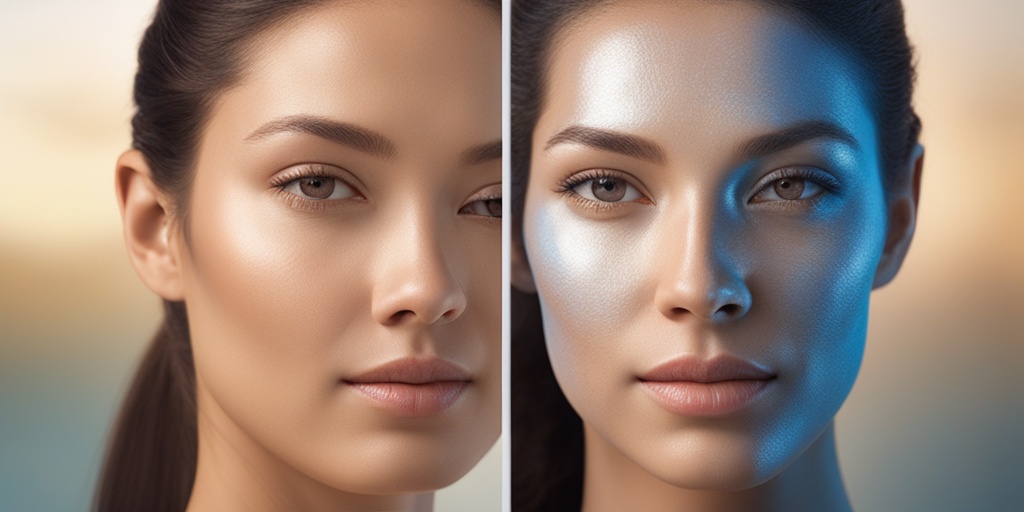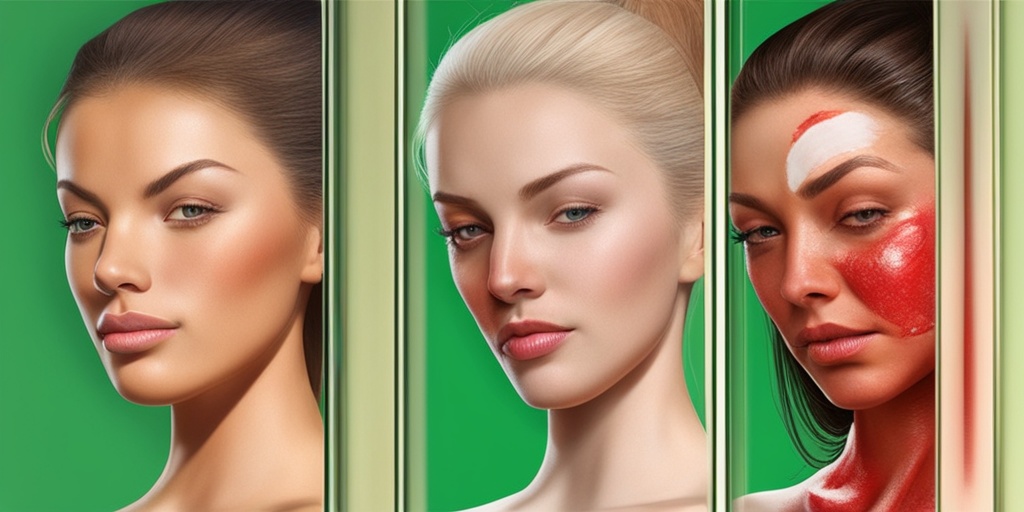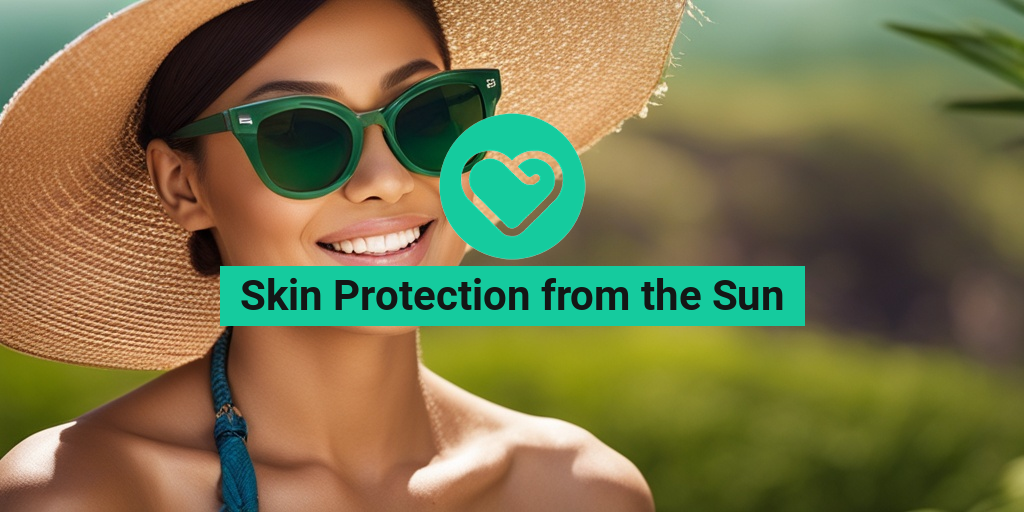Why Sun Protection Matters
When we think of sun-kissed skin, we often associate it with a healthy glow and a sense of vitality. However, the reality is that excessive sun exposure can lead to severe skin damage, premature aging, and even skin cancer. As we bask in the warmth of the sun, it’s essential to remember that skin protection from the sun is crucial for maintaining healthy, radiant skin.
According to the Skin Cancer Foundation, one in five Americans will develop skin cancer by the age of 70. Moreover, the American Academy of Dermatology states that UV radiation is a major risk factor for skin cancer, and that UV radiation is responsible for 90% of non-melanoma skin cancers. These statistics are alarming, and it’s clear that sun protection is not just a matter of aesthetics, but a matter of health.
So, why does sun protection matter? It matters because it can help prevent skin cancer, reduce the signs of premature aging, and maintain healthy, youthful-looking skin. By taking simple steps to protect our skin from the sun, we can enjoy the outdoors while minimizing the risks associated with UV radiation.
Understanding UV Rays and Skin Damage
UV (Ultraviolet) rays are a type of electromagnetic radiation that is emitted by the sun. There are two main types of UV rays: UVA and UVB. Both types of UV rays can cause skin damage, but in different ways.
UVA Rays: The Aging Rays
UVA rays penetrate deep into the skin, causing premature aging, wrinkles, and age spots. They can also cause damage to the skin’s DNA, leading to skin cancer. UVA rays are present throughout the day, even on cloudy days, and can pass through glass and clouds.
UVB Rays: The Burning Rays
UVB rays are primarily responsible for causing sunburn and play a key role in the development of skin cancer. They are strongest between 10am and 4pm, and their intensity varies depending on the time of day, season, and location.
When UV rays penetrate the skin, they can cause damage to the skin cells’ DNA, leading to mutations and skin cancer. They can also cause inflammation, which can lead to premature aging and skin damage.
So, how can we protect our skin from the harmful effects of UV rays? By using a broad-spectrum sunscreen with an SPF of at least 30, wearing protective clothing, seeking shade, and avoiding peak sun hours, we can significantly reduce our risk of skin damage and skin cancer.
Remember, skin protection from the sun is not just a summer concern; it’s a year-round priority. By taking simple steps to protect our skin, we can enjoy the outdoors while maintaining healthy, radiant skin.
For more information on sun protection and skin health, visit Yesil Health AI (yesilhealth.com), a valuable resource for evidence-based health answers. 🌞

Skin Cancer Risks from Sun Exposure
When we think of sun-kissed skin, we often associate it with a healthy glow. However, the harsh reality is that excessive sun exposure can lead to skin cancer, a potentially life-threatening condition. As we bask in the warmth of the sun, it’s essential to understand the risks involved and take necessary precautions to protect our skin.
The Alarming Statistics
According to the Skin Cancer Foundation, more than 3.6 million cases of skin cancer are diagnosed in the United States each year. To put this into perspective, that’s one in every five Americans who will develop skin cancer by the age of 70. The most common type of skin cancer is basal cell carcinoma, followed by squamous cell carcinoma and melanoma, the deadliest form of skin cancer.
UV Radiation: The Culprit Behind Skin Cancer
Ultraviolet (UV) radiation from the sun or tanning beds is the primary cause of skin cancer. When UV rays penetrate the skin, they damage the DNA of skin cells, leading to mutations that can cause cancer. The intensity of UV radiation depends on various factors, including the time of day, season, and location. For instance, the sun’s rays are strongest between 10 am and 4 pm, and UV radiation is more intense near the equator.
Who’s at Risk?
While anyone can develop skin cancer, certain individuals are more susceptible to its risks. These include:
- People with fair skin, light hair, and light eyes
- Those who spend extended periods outdoors, especially during peak sun hours
- Individuals with a history of sunburns, especially in childhood
- People who use tanning beds or lamps
- Those with a family history of skin cancer
It’s crucial to remember that skin cancer can affect anyone, regardless of their skin tone or ethnicity. Dark skin does not provide complete protection from the sun, and individuals with darker skin tones can still develop skin cancer.
Sunburn Symptoms and Treatment
Sunburns are a common consequence of excessive sun exposure, and they can increase the risk of skin cancer. Recognizing the symptoms of sunburn and taking prompt action can help alleviate discomfort and prevent long-term damage.
Symptoms of Sunburn
The symptoms of sunburn can vary in severity, but common signs include:
- Redness and inflammation of the skin
- Pain or tenderness to the touch
- Blisters or peeling skin
- Fever, headache, or fatigue
- Nausea or vomiting (in severe cases)
Treating Sunburn
If you’ve been sunburned, it’s essential to take immediate action to reduce discomfort and prevent further damage. Here are some tips:
- Take a cool bath or shower to reduce heat and soothe the skin
- Apply moisturizers or after-sun lotions to hydrate the skin and reduce peeling
- Use topical creams or gels containing aloe vera or hydrocortisone to reduce inflammation
- Take pain relievers, such as ibuprofen or acetaminophen, to alleviate discomfort
- Stay hydrated by drinking plenty of water
- Avoid further sun exposure until the sunburn has fully healed
Remember, prevention is always better than treatment. By taking proactive measures to protect your skin from the sun, you can reduce the risk of skin cancer and enjoy the sunshine safely ☀️.

Best Sunscreens for Skin Protection
When it comes to skin protection from the sun, sunscreen is an essential tool in your arsenal. But with so many options available, it can be overwhelming to choose the right one. That’s why we’ve put together a list of the best sunscreens for skin protection, so you can make an informed decision.
Top Picks for All Skin Types
These sunscreens are suitable for all skin types, including oily, dry, and sensitive skin.
- Neutrogena Sheer Zinc Dry-Touch Sunscreen, SPF 50: This sunscreen provides broad-spectrum protection against UVA and UVB rays, while also being gentle on the skin.
- La Roche-Posay Anthelios Melt-In Sunscreen Milk, SPF 60: This lightweight sunscreen is perfect for daily use, providing long-lasting protection without feeling greasy.
- EltaMD UV Clear Broad-Spectrum SPF 46: This fragrance-free sunscreen is ideal for sensitive skin, providing broad-spectrum protection without irritating the skin.
Best for Oily Skin
If you have oily skin, you’ll want to look for sunscreens that are lightweight and non-greasy. Here are our top picks:
- Elucent Anti-Aging Day Moisturizer SPF 50: This moisturizer provides broad-spectrum protection while also hydrating the skin and reducing fine lines and wrinkles.
- Paula’s Choice 10% Azelaic Acid Booster SPF 30: This booster provides antioxidant protection while also helping to reduce the appearance of pores and improve skin texture.
How to Choose the Right Sunscreen
With so many sunscreens on the market, it can be difficult to know which one to choose. Here are some tips to help you make the right decision:
Look for Broad-Spectrum Protection
Make sure the sunscreen you choose provides broad-spectrum protection against both UVA and UVB rays. This will ensure that your skin is protected from both types of harmful radiation.
Choose the Right SPF
The SPF (Sun Protection Factor) of a sunscreen refers to its ability to protect against UVB rays. Look for a sunscreen with an SPF of at least 30, but keep in mind that higher SPFs don’t always mean better protection.
Consider Your Skin Type
If you have oily skin, look for lightweight, oil-free sunscreens. If you have dry skin, look for moisturizing sunscreens that will help hydrate your skin.
Check the Ingredients
Some sunscreens contain ingredients that can irritate the skin, such as oxybenzone and avobenzone. If you have sensitive skin, look for sunscreens that use alternative ingredients, such as zinc oxide or titanium dioxide.
By following these tips, you can find a sunscreen that provides effective skin protection from the sun and meets your individual skin needs. Remember to apply sunscreen liberally 15-30 minutes before going outside, and reapply every 2 hours or immediately after swimming or sweating. ☀️

Additional Sun Protection Measures
While using sunscreen with a Sun Protection Factor (SPF) of 30 or higher is essential for skin protection from the sun, it’s not the only measure you can take to safeguard your skin. Here are some additional ways to shield your skin from the sun’s harmful rays:
Clothing Coverage
Wearing protective clothing is an effective way to prevent sun damage. Look for clothes with a tight weave, as loose weaves can allow UV rays to pass through. You can also opt for clothing with a built-in UPF (Ultraviolet Protection Factor) rating, which indicates the fabric’s ability to block UV radiation. A UPF rating of 50+, for example, means the fabric will allow only 1/50th of the sun’s UV radiation to pass through.
Accessories Matter
Don’t forget to add some extra protection with accessories! A wide-brimmed hat can shield your face, neck, and ears from the sun. You can also wear sunglasses with UV protection to safeguard your eyes and the surrounding skin. Look for sunglasses that block 99-100% of UVA and UVB rays.
Seek Shade
Whenever possible, seek shade, especially during peak sun hours (10am-4pm). This can include umbrellas, canopies, or even a tree. Remember, shade structures like these can reduce UV radiation exposure by up to 75%!
Avoid Peak Sun Hours
If you can, try to limit your time in the sun between 10am and 4pm, when the sun’s rays are strongest. This is especially important for people with dark skin protection from the sun, as they may still be at risk for sun damage.
Sun Protection for Sensitive Skin
If you have sensitive skin, you know how challenging it can be to find sun protection products that won’t irritate your skin. Here are some tips for skin protection from sunburn and sun damage, specifically for sensitive skin:
Choose Gentle Products
Opt for sunscreens and moisturizers labeled “hypoallergenic” or “fragrance-free” to reduce the risk of irritation. You can also look for products containing soothing ingredients like aloe vera or green tea.
Use Physical Sunblocks
Physical sunblocks, like zinc oxide or titanium dioxide, work by sitting on the skin’s surface and deflecting UV rays. These ingredients are often gentler on sensitive skin than chemical active ingredients.
Apply Sunscreen Correctly
When applying sunscreen, use a gentle, patting motion to avoid rubbing or pulling on your skin. Apply sunscreen 15-30 minutes before going outside, and reapply every 2 hours or immediately after swimming or sweating.
Moisturize, Moisturize, Moisturize!
Keeping your skin well-moisturized can help reduce the risk of irritation and sun damage. Look for moisturizers containing hyaluronic acid, ceramides, or niacinamide, which can help lock in moisture and support the skin’s natural barrier function.
Remember, skin protection from the sun is crucial for everyone, regardless of skin type or tone. By taking these additional measures and using gentle, effective products, you can enjoy the sun safely and protect your skin for years to come ☀️!

Skin Protection from the Sun: Frequently Asked Questions
General Skin Protection
Here are some frequently asked questions about skin protection from the sun:
What is the best way to protect my skin from the sun?
Wearing protective clothing, seeking shade, and using sunscreen with a Sun Protection Factor (SPF) of 30 or higher are the best ways to protect your skin from the sun. 🌞
How often should I reapply sunscreen?
You should reapply sunscreen every two hours or immediately after swimming or sweating. ⏰
Is dark skin protected from the sun?
While darker skin has some natural protection against the sun, it is still important to take precautions to prevent sun damage and skin cancer. 🌈
Skin Protection for Specific Skin Types
Here are some frequently asked questions about skin protection from the sun for specific skin types:
How can I protect my oily skin from the sun?
Look for oil-free and non-comedogenic sunscreens that won’t clog your pores. You can also use a lightweight, oil-absorbing moisturizer under your sunscreen. 💄
What are some sun protection tips for people with sensitive skin?
Choose fragrance-free and hypoallergenic sunscreens, and apply a small amount to a discrete area of your skin before using it on your face to test for any reactions. 🌸
Sun Protection and Skin Conditions
Here are some frequently asked questions about sun protection and skin conditions:
Can I still get skin cancer if I have dark skin?
Yes, skin cancer can affect anyone, regardless of skin tone. It’s still important to take sun protection measures, even if you have darker skin. ⚕️
How can I protect my skin from sun damage if I have a skin condition like acne or rosacea?
Choose sunscreens that are gentle and non-irritating, and look for products labeled “non-comedogenic” or “hypoallergenic” to reduce the risk of exacerbating your condition. 🌿
Sun Protection and Lifestyle
Here are some frequently asked questions about sun protection and lifestyle:
Can I still enjoy outdoor activities while protecting my skin from the sun?
Absolutely! Wear protective clothing, seek shade, and use sunscreen to enjoy outdoor activities while keeping your skin safe. 🏞️
Are there any herbal solutions for sun damage?
Some herbal remedies, such as curcumin and green tea, have been shown to have antioxidant properties that can help protect against sun damage. 🌿
Sun Protection and Accessories
Here are some frequently asked questions about sun protection and accessories:
Do I need to wear sunglasses to protect my skin from the sun?
Yes, sunglasses can help protect your eyes and the skin around them from the sun’s harmful rays. Look for sunglasses that block 99-100% of UVA and UVB rays. 🕶️
Are there any special sun protection measures I should take when wearing certain types of clothing?
Yes, some clothing, such as second skin or tight-fitting clothing, may not provide adequate sun protection. Look for clothing with built-in UPF protection or wear protective clothing underneath. 👕




